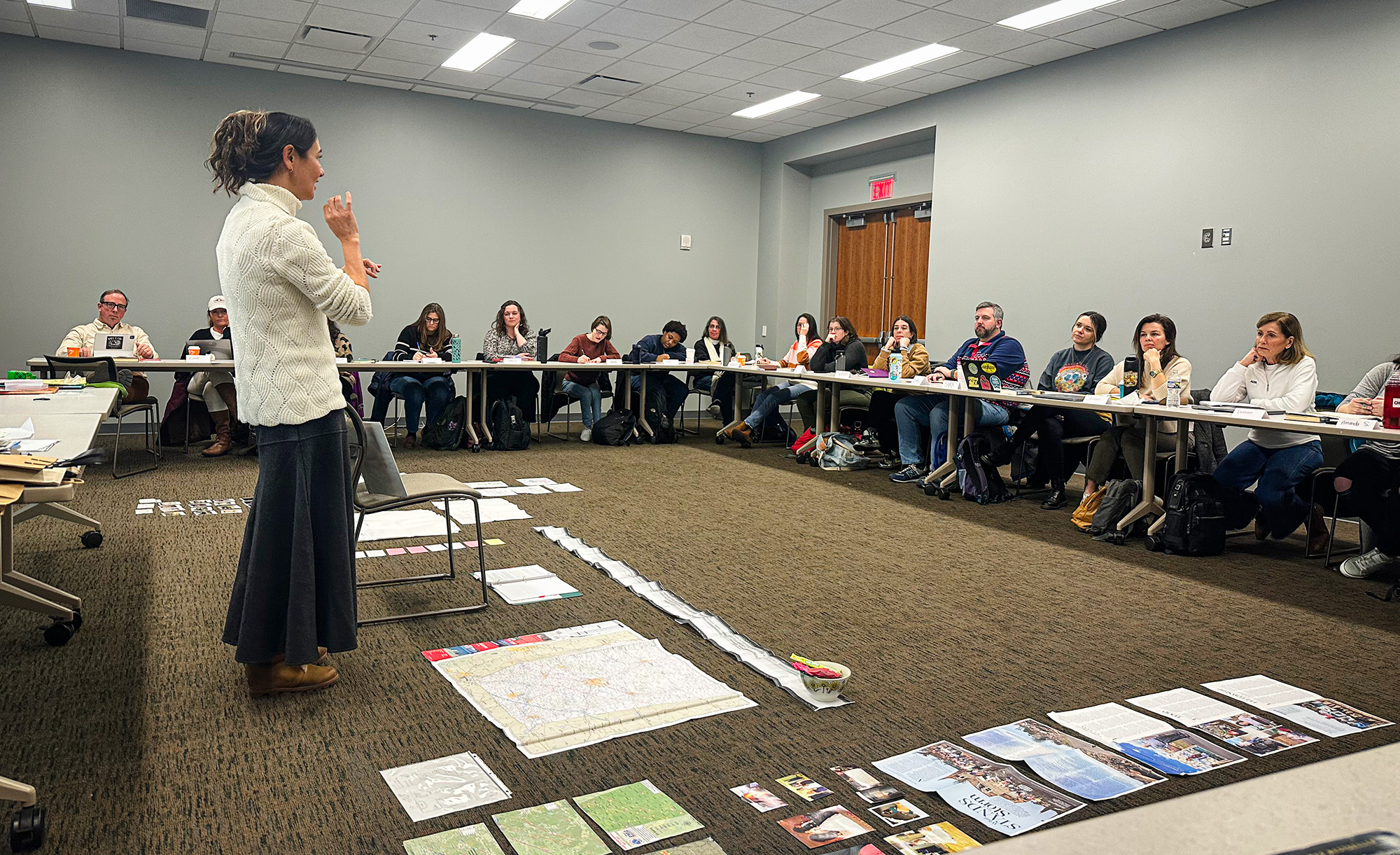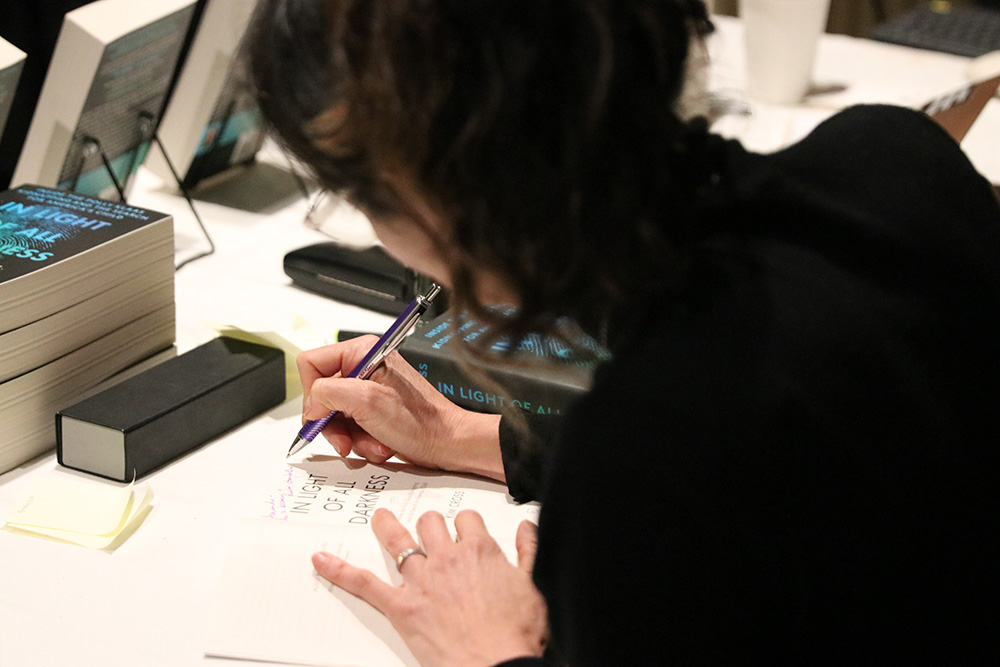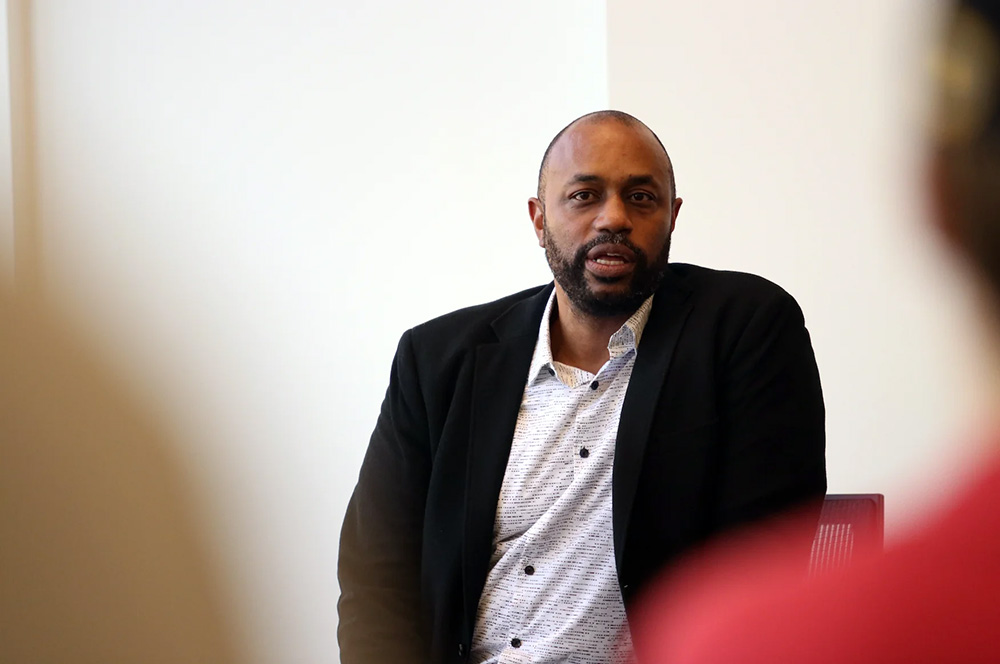Redefining the MFA Experience at UGA
Redefining the MFA Experience at UGA

The University of Georgia’s MFA in Narrative Nonfiction, offered through Grady College of Journalism & Mass Communication, provides an unparalleled opportunity for writers seeking to refine their craft while balancing their professional and personal commitments. Tom Cullen, a graduate of the program and a member of UGA’s faculty, recently shared his experience with this low-residency degree, back in its first ever cohort.
Cullen’s decision to enroll was originally influenced by conversations with colleagues, and his deep respect for the late Valerie Boyd, who founded the program. “It wasn’t about needing another degree. I wanted to grow my abilities,” he explained. “At the time, Valerie was running it, and I knew her as a colleague and a friend. Just the way she presented it, I thought, ‘What an amazing opportunity.’” Boyd’s vision for the program, combined with the resources and reputation of UGA and Grady College, made it an easy choice. “I trusted Valerie and her mission. It was unlike anything I’d ever heard of.”

Reflecting on his time in the MFA program, Cullen emphasized how the flexibility made it feasible for working professionals. “I think the reason why it worked is I was still able to work full-time as a lecturer,” he explained. The program’s hybrid format blends intensive, week-long residencies at the start of each semester with ongoing monthly cohort check-ins with writing mentors, allowing students to maintain their regular schedules. “It wouldn’t have been feasible if it weren’t for the online element. I think that’s why it appeals to a lot of professionals,” Cullen added.
The residencies were a cornerstone of Cullen’s experience. “We spent five days together, building relationships and workshopping,” he said. “The workshops were a lot of fun. Everyone would go out to dinner and spend a lot of time together. I still keep in touch with a lot of people in the program.” These immersive sessions fostered a strong sense of community that persisted even when off-campus. “The bonds we formed during those residencies were different from anything I’d experienced before. It bonded students in a way that none of my in-person classes during my undergrad or my master’s ever did.”

The program also provides access to a roster of distinguished faculty and guest writers who bring current, real-world expertise into the classroom and act as dedicated mentors, working closely with students to inspire and support each writer’s emerging craft and voice throughout the semester.
“Having exposure to writers who are active in the field made me reflect on how I do my job,” Cullen remarked. The 2025 residency, for instance, featured Kim Cross, a New York Times Best-Selling author, journalist, and historian known for meticulously reported narrative nonfiction; and Rosalind Bentley, the editor at the Southern Foodways Alliance and the new editor-at-large for the Oxford American; among others.
Cullen also pointed to the program’s role as a gateway for professionals aspiring to teach at the university level. “It’s a terminal degree. If somebody is a professional and they are thinking about teaching at the university level, this is a really excellent tool,” he noted. He credited the program with not only enhancing his skills as a writer but also informing his teaching methods as a lecturer. “It really made me realize how students respond more positively to current, up-to-date, real-world content.”
The program’s emphasis on flexibility, community, and professional growth has made it a game-changer for many students. Cullen described it as “a full degree that allows you to live a more normalized life.” For him, balancing a teaching load with the demands of the MFA program was challenging but rewarding. “Everyone had a different schedule, but we all worked around each other’s needs,” he said. More than this, Cullen emphasized the dedication of the instructors. “What students maybe don’t realize is that [in UGA’s online learning programs], you will always get faculty who are so excited, so wanting to be there.”

He shared stories of alumni who have achieved notable success, including Diana Kio, whose book has been optioned for a TV show. “One of our recent grads has just ghostwritten Jamie Foxx’s autobiography,” Cullen said of Nick Chiles, a Pulitzer Prize-winning writer who also leveraged his MFA to become a faculty member. “It’s incredible to see the opportunities this program has opened up for so many.”
Beyond individual achievements, Cullen sees the MFA in Narrative Nonfiction as a testament to the potential of online education when done right. “COVID taught us that students are not all the same,” he observed. “The more options they have, the better it is for everyone.” For Cullen, the program not only validated the viability of online learning but also revealed its unique strengths. “It’s a different style, but equally rigorous,” he said. “Online learning can actually be the optimal solution for a lot of people.”
Originally from the United Kingdom, Tom Cullen specializes in teaching public relations writing and communication. Cullen joined the Grady College faculty in 2018 after earning his M.A. in Journalism and Mass Communication, and later went on to complete the MFA in Narrative Nonfiction program in 2021. Recognized as the Grady College “Public Relations Teacher of the Year” in 2021, Cullen adopts a holistic approach to teaching real-world PR skills, mentoring students applying to internships, jobs, and graduate programs.
Grady also offers a companion program—the Low-Residency MFA in Screenwriting, which operates under a similar format. This program allows students to complete most of their screenwriting degree requirements online while developing their skills and talents under the guidance of experienced faculty writing mentors.
The MFA in Narrative Nonfiction program at UGA stands out for its innovative approach, blending flexibility with excellence in instruction and creativity. Whether you’re an aspiring writer, a seasoned professional, or someone seeking a new challenge, this program offers a path to growth, connection, and achievement—all supported by the resources and expertise of one of the nation’s top universities.
As Cullen said, “It was a really powerful experience. I don’t know a single person who regretted doing it.”
Learn more about the Low-Residency MFA in Narrative Nonfiction.
Written by:
